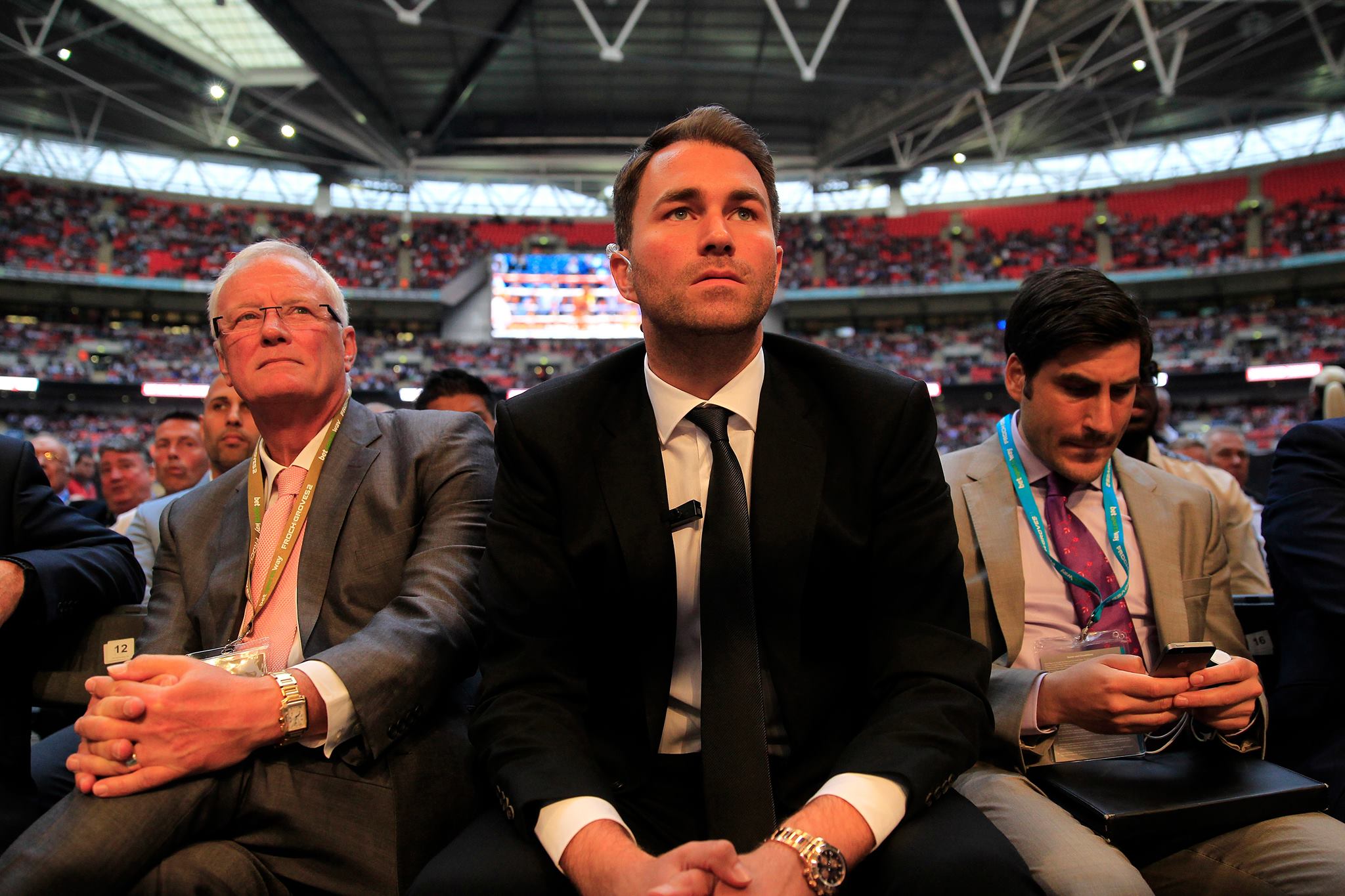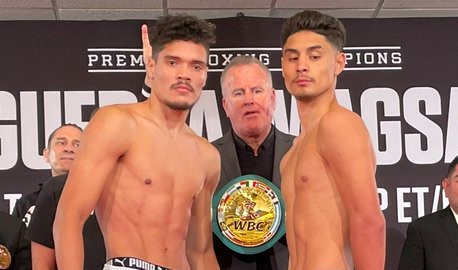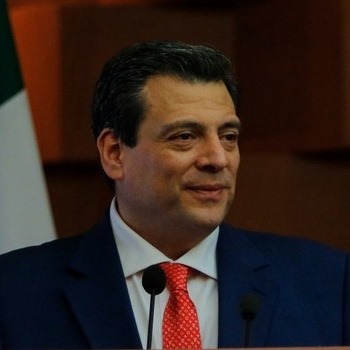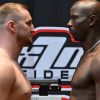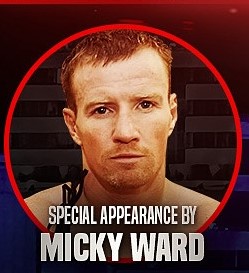by Charles Jay
“Amir’s definitely up there in pound-for-pound terms. You can make that argument for him to become the best fighter in the world. We know Floyd Mayweather and Manny Pacquiao are on top at the moment, but Amir is right on their backs.”

Delane Rouse – Hoganphotos/Golden Boy Promotions
Those were the words of Oscar De La Hoya, Amir Khan’s promoter, in talking to reporters about his charge, who will be defending his IBF and WBA titles against Lamont Peterson on Saturday in the nation’s capital.
Hey look; we are all boxing fans. We like it when we think we are witnessing the development of greatness. We want to see fighters who are great because, well, it’s simply exciting, and it provides a certain yardstick by which you can measure those who come along later on. All of us like to talk about the night we saw so-and-so at his absolute best.
But I think it would be healthy to slow down on the hyperbole. Jumping the gun on fighters is counter-productive, if you really want to have some respect for what constitutes greatness in this sport. There’s nothing wrong with sitting back and letting the guy prove it. If he gets there, believe me, we’ll know.
Amir Khan isn’t there right now, at least not to where he’s in the same sentence as Mayweather or Pacquiao.
Some of what brings us to this discussion in the first place is a product of the publicity machine that was set in motion well before Khan even turned pro. This was certainly a commodity that was going to be well-tended early on, as his was one of the most widely anticipated debuts in British history. Make no mistake about the fact that he was handled with great care.
As Khan moved into main event territory, none of the names he had faced – not Willy Limond, Graham Earl, Gairy St. Clair, Scott Lawton or Michael Gomez – while very formidable in the U.K., had made any kind of impact on the world scene. Perhaps that’s not anything to be shocked by.
But then his handlers made a serious miscalculation. Faced with someone whose power they may had underestimated, or simply not scouted correctly (Breidis Prescott), they got Khan blasted out in less than a minute.
And you notice they didn’t exactly go rushing to avenge that defeat, as is often the case with young fighters who have been earmarked for superstardom.
Following that fight, Khan had to move forward, but he did so very cautiously. Oisin Fagan is strictly an opponent, hand-picked to help Khan get back in the win column, then there was a “name” foe in Marco Antonio Barrera, who was beyond shot.
Khan’s championship win (WBA 140-pound) came against Andriy Kotelnyk, who had been defeated by Soulemane M’baye and Junior Witter previously, before beating Marcos Maidana. That was a good. solid, legitimate victory for Khan, although from a power standpoint, it carried relatively low risk (Kotelnyk had 13 KO’s in 31 wins).
Then there was Dimitriy Salita, who never had any business being in a title fight, and the ultra-light hitting Paul Malignaggi.
The southpaw, Paul McCloskey, wasn’t much coming in, though he has since managed to catch Prescott on the way down. And Zab Judah is simply finished as a fighter.
The “signature” win on the record, and one that was rather rough-and-tumble, was against Marcos Maidana, admittedly a dangerous puncher, who had made a name for himself by blowing out Victor Ortiz but has since had life-and-death with a shot Erik Morales.
Certainly this resume is not any lesser than you will see from many of the fighters who are featured on HBO. And he seems to be progressing along fine. But there aren’t exactly any super-fighters on that resume. The point is, while the record is great, and the talent is evident, there’s nothing to suggest that Khan has earned a place among the world’s best pound-for-pound fighters, or is even ready to ascend to that designation, except in the minds of those who have a certain financial interest in convincing other people of it.
Don’t get me wrong; I’m not knocking the kid. You go back to the Olympics and could see he had something. And for him to be pushed hard in a sport that doesn’t have a lot of genuine stars is to be expected.
But let’s just hold up on the talk of his “legacy,” or mythologizing about the “magic” of the Khan-Freddie Roach pairing, because it is premature at this time, if not kind of silly.
One should put together a real body of work before entering “pound-for-pound” consideration. Granted, Khan is in the midst of doing that, and a win over Lamont Peterson would be a building block – perhaps one of the more important ones. But it wouldn’t DEFINE the body of work. He’d have to take much bigger steps than that.
De La Hoya thinks that in time, Khan can catch up to the two icons who currently sit atop the perch. Maybe that’s the case, and God bless him if it happens. I wouldn’t discount any possibilities, although I suspect that when all is said and done, we will be talking about Amir Khan as a credible champion and a very good fighter who fell a little short of being a great fighter.






